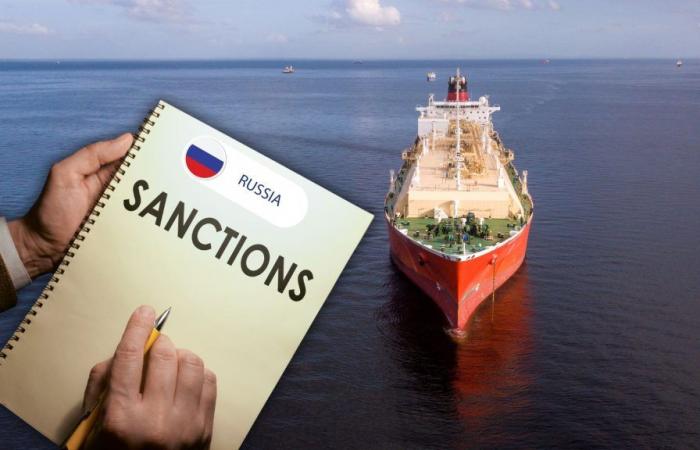While Europe launches the fourteenth package of sanctions against Russia and the United States intensifies the boycott against Moscow, also hitting three Emirati companies involved in the transport of Russian crude oil as well as Iranian oil products, Putin’s dark fleet seems to be growing more every week , partly thanks to the clear openness of the Bric countries, partly thanks to a series of increasingly sophisticated triangulations, which appear to be extending from the transport of crude oil to that of gas tankers as well.
With the State Department’s spotlight now permanently on the tankers of the United Arab Emirates, engaged in the transport of Iranian petroleum and petrochemical products, with the identification of 11 tankers, “becoming” priority targets after the acceleration of the nuclear program Tehran, Russian methods for circumventing sanctions on oil exports by using a dark fleet appear to be increasingly sophisticated. To the point that we no longer talk about dark trading but about dark fleet.
Ship-to-ship transshipments of oil
In a now constant manner and with few variations compared to the now consolidated framework, transshipments of large loads of oil are carried out between suspicious ships and therefore traceable to ships of third-party flags capable of bypassing the sanctions; The red port of Murmansk hosted at least 13 such ship-to-ship transshipments at anchorage in the period between January 1 and April 30 this year.
If it is now certain that Russia has amassed a dark fleet to transport oil throughout the world, obviously aided and supported in this by China as well as by the Bric countries which do not adhere to the system of sanctions against Moscow, it is confirmed every day plus the fact that Russia is duplicating its model of circumventing sanctions also in the LNG liquefied natural gas sector.
Read also
According to a Bloomberg report, natural gas export plans have so far been hindered if not totally blocked both by the control system implemented by the United States of America and by sanctions and the mooring ban imposed in the vast majority of European ports . In particular, it appears that in the last three months the ownership of at least 8 Russian ships has been transferred to newly established companies in Dubai, confirming that the Emirates have become a real crossroads for circumventing Western sanctions.
Shadow society in the United Arab Emirates
As has already happened in the oil tanker sector, also with regard to gas tankers the components of the system for circumventing sanctions and the creation of a dark fleet are completely similar and involve the establishment of shadow companies often located in compliant countries (in specific case of companies registered with an unclear shareholding in the Emirates), therefore old ships which in theory should already be placed out of service and some of which have even been included in the fleet of tankers scheduled for demolition; therefore insurers that are completely unknown and not included in the databases of international organizations including that of the International Maritime Organization, IMO.
Moreover, these former Russian ships, now ghosts and covered by equally dark insurance policies, have benefited from a sort of safe conduct to transit the Red Sea and avoid being attacked by the Houthi rebels.
Again according to unofficial sources, these shipping companies that manage old gas tankers have the North Sea as their final destination and to this end they are looking on the market for specialized personnel who, in the case of the dark fleet of oil tankers, were not necessary and who, instead, in the case of gas tankers, are indispensable to manage the sophisticated on-board systems which are even more delicate considering the age of the ships.
So there is another problem that the Russians are trying to solve. While the oil fleet of various sizes has more than 7,500 units sailing around the world, the gas tanker fleet has a very limited number and is therefore more easily traceable with satellite systems. Furthermore, while the transfer from an oil tanker to another dark tanker can be done even in the open sea, this operation is decidedly more complex for gas tankers that would be condemned to use the services of ports and terminals in areas that are difficult to trace even by GPS, such as the aforementioned port of Murmansk beyond the Arctic Circle.
Russia is currently the fourth largest exporter of LNG, and the recent decision by the United States to prevent the start of exports from Arctic LNG 2, a new plant developed by Novatek, the largest Russian exporter of LNG, makes it mandatory for Moscow to commissioning of a second dark fleet Able to circumvent, through the mechanism of parallel companies and ships in a state of pre-demolition, any type of sanction.
Did you like this article? Read also
Follow us on our channels



